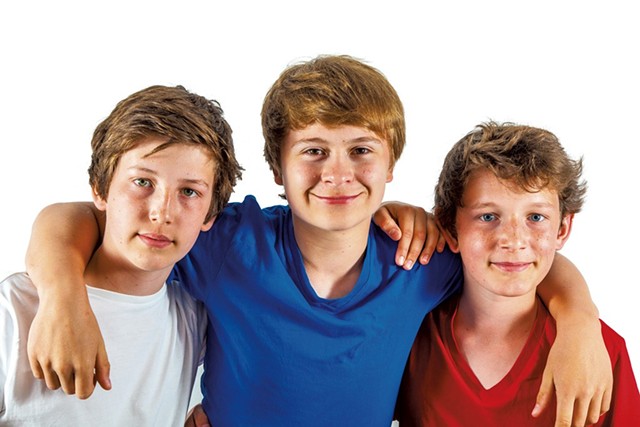
My son loves to play basketball. His enthusiasm and passion for the sport are contagious. His father and I never played so we're happy to leave coaching to the people who know what they're doing, but we do spend time talking about his "head game" — how to stay mentally strong in various situations, like dealing with trash talk. The trash talk my son has experienced ranges from funny and friendly comments among players who know and understand each other, to pointed and edgy, to alarmingly inappropriate. It's tough when your kid comes home confused about how a pickup game turned into fielding attacks on his masculinity and insults hurled at his female friends.
Of course, not all masculinity is problematic. So, when is it? According to author Michael Carley, writing for the website The Good Men Project, masculinity becomes toxic when it "derives from a rejection of ... femininity that is so pervasive as to become unhealthy for both men and those around them." Case in point: Sports trash talk that moves beyond the realm of the game to insulting, threatening and objectifying women.
Why is it important to challenge our culture of toxic masculinity? Because it hurts everyone — women, children and men. In his article, "What Is Toxic Masculinity," Carley states that, "Toxic masculinity stunts [men's] cognitive, intellectual, and emotional growth." How? "By rejecting anything stereotypically feminine," Carley explains, "men and boys are taught to reject an essential part of themselves, something that is to be valued. What's more, these allegedly female traits are often ones that help us all get along in society, things like compassion, empathy, even politeness."
As boys approach adulthood, our culture attempts to cultivate manliness by discouraging boys from expressing their feelings. We tell boys to "man up," compare them to girls as an insult and praise them for asserting dominance over other people. This programming impacts their ability to have and maintain healthy friendships. No friends leads to loneliness, and loneliness leads nowhere good — increased risk of suicide, addiction and disease.
What can we do to help our sons become healthy, multidimensional adults buoyed by meaningful relationships? Model emotional intelligence and teach them to be self-aware and conscientious. Identify how we're feeling throughout the day and ask our sons to share their feelings as well. Brainstorm coping skills — like channeling anger by listening to or playing music.
Dismantling toxic masculinity is a matter of emotional and physical health for us all. We don't have to be experts to do our part. We just have to debunk it wherever it rears its head — whether it's in the workplace, in the media or on the court.











Comments
Comments are closed.
From 2014-2020, Seven Days allowed readers to comment on all stories posted on our website. While we've appreciated the suggestions and insights, right now Seven Days is prioritizing our core mission — producing high-quality, responsible local journalism — over moderating online debates between readers.
To criticize, correct or praise our reporting, please send us a letter to the editor or send us a tip. We’ll check it out and report the results.
Online comments may return when we have better tech tools for managing them. Thanks for reading.